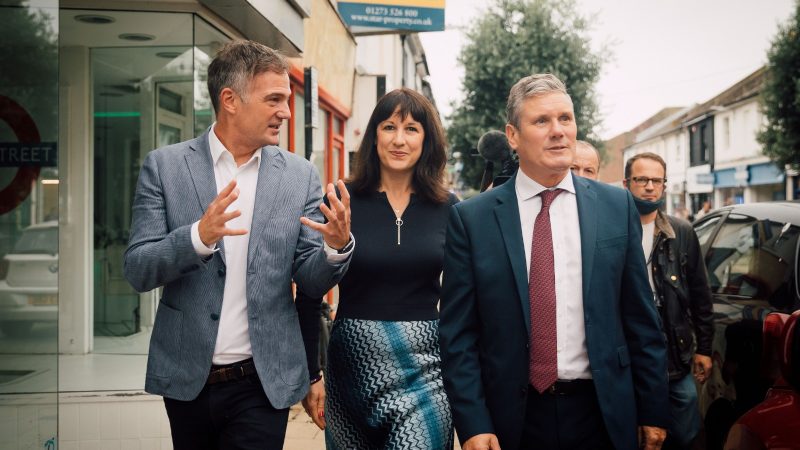
Good morning. The debate over Labour’s position on the two-child benefit limit is going precisely nowhere and continues to dominate party discussion this week. MPs from the Socialist Campaign Group have launched a petition with Momentum to push to resolve to scrap the limit (among other proposals, including free universal school meals for primary school students, rent controls, and a £15 minimum wage) at the national policy forum (NPF) this weekend. Keir Starmer, however, was bullish when speaking at the Tony Blair Institute for Global Change yesterday, appearing to suggest it was the kind of “tough decision” the party needed to be making.
Speaking at the Institute’s “Future of Britain” conference (where other guests included, bafflingly, former US Secretary of State Henry Kissinger, who many consider to be a war criminal), Starmer said that despite the party’s commitments to rigid fiscal discipline, the idea that the choice facing us is between a secure economy or big reform is “wrong”, and that the party has, and needs, “bold” reform commitments (for example, on planning).
This wording – bold “reform” – sheds light on a broader policy approach that we can expect to see the party taking more and more in the run up to the next election. With purse strings famously tight, it would seem that mass public spending commitments of the type we saw in the New Labour years are off the table, but changes to the way our society and its services are regulated and run are not. Planning reform, on which the party has been strikingly red-blooded, is a key example of this; so too are potential Lords, devolution and more contentious NHS reforms. Compelling changes in behaviour rather than expanding capacity may well be the order of the day, as shadow ministers seek to make their mark without breaking the bank.
Is reform, however, something you can always do on the cheap? While it might not be as expensive as ploughing money into public services wholesale, a key problem for regulators is “dwindling resources”, as Emma Rose of UnChecked UK pointed out on LabourList earlier this week. Reform is not necessarily the political equivalent of a free lunch – because there’s no such thing.
Dissent about the party’s direction was also brewing last night at an event hosted by Compass (whose director, Neal Lawson, is having his party membership investigated for a tweet about non-Labour electoral pacts). Speakers included Open Labour co-chair Tessa Milligan (who termed the two-child policy announcement “manifesto by ambush”), Renewal’s David Klemperer and Labour peer Ruth Lister. The headline, however, was a notably strong address from Dagenham and Rainham MP Jon Cruddas, who condemned a crackdown on pluralism and claimed that a “gang” associated with the “old hard right of the party” (he name-checked the campaign group Labour First) were engaged in “political trophy hunting” and a sui generis crackdown on dissent and independent thinking. The soft left are mad as hell, and they’re not going to take it anymore! Well, they probably are. But maybe a bit less.
Luke Akehurst, Secretary of Labour First, said it was not going to be “provoked or distracted into a spat about obscure differences between factions” as it mobilises for this week’s by-elections. Akehurst has also separately hit out at Manchester metro-mayor Andy Burnham, who, questioned about Jamie Driscoll’s intention to run as an independent, called on the party to “move away from factionalism”. Akehurst said the selection of Kim McGuinness, “a very talented and experienced woman”, was being overshadowed by “an entitled bloke…banging on about how they have been denied their divine right to stand and centring the story on himself, and being amplified by others”.
And, finally, according to new figures out this morning, inflation fell more than expected to 7.9% in June (versus 8.7% in May). Pundits called it good news for the government given its pledge to halve inflation, but shadow Chancellor Rachel Reeves noted it remained “persistently high” and above international peers. “This is becoming a hallmark of Tory economic failure.” TUC general secretary Paul Nowak said the cost-of-living crisis was still “far from over” and families desperately need a “credible plan” for growth and decent jobs.
Sign up to LabourList’s morning email for everything Labour, every weekday morning.



More from LabourList
‘Labour council candidates – it’s tough, but all is not lost’
‘Labour won’t stop the far right by changing leaders — only by proving what the left can deliver’
‘Cutting Welsh university funding would be economic vandalism, not reform’